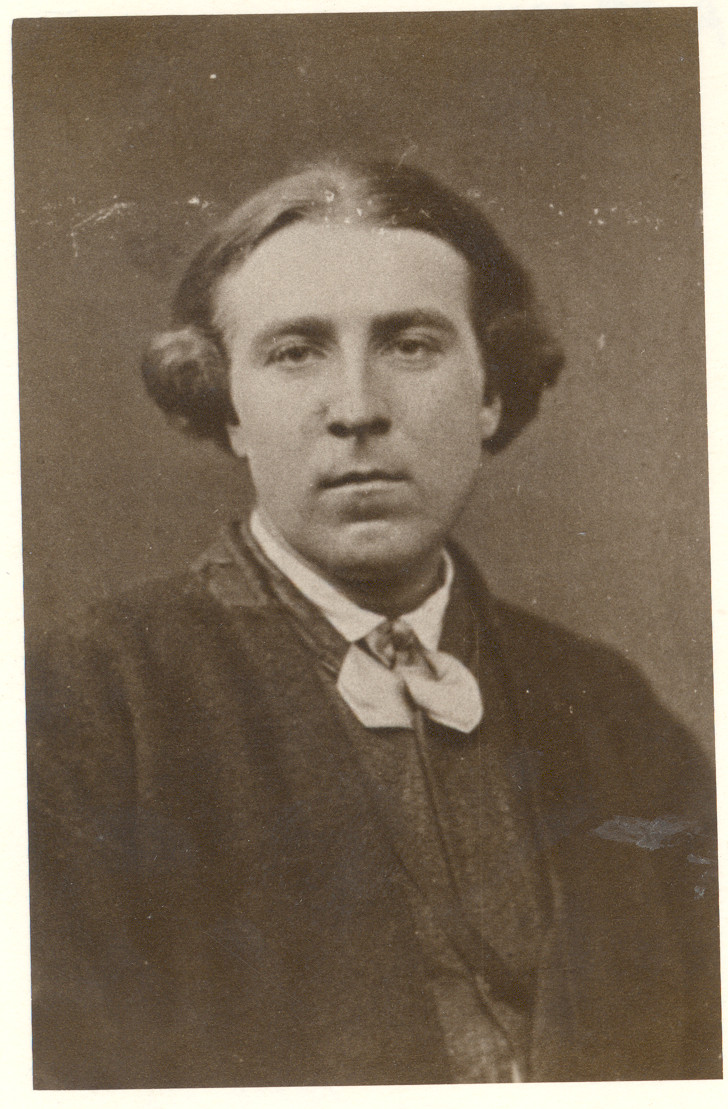
Ado Reinvald
Ado Reinvald (3. XII / 21. XI 1847 – 8. II 1922) was an Estonian poet whose work was shaped by the National Awakening.
He was born in Viljandi parish. His family soon moved to Ilissa Farm in Tarvastu commune, whose master he became in 1867 at the age of only twenty. Reinvald was basically without schooling; he attended Soone village school for only one winter. Under Reinvald’s management his home farm was transformed into a local cultural centre, but went bankrupt in 1894. After the sale of the farm Reinvald lived in various places, mostly at Elva. For the last ten years of his life he lived at Kulbilohu village near Elva, where he died. He is buried in the Raadi graveyard in Tartu.
His first poem appeared in 1868 in the Perno Postimees newspaper. The manuscript of his first collection, Villandi laulik (‘The Bard of Viljandi’) was edited by Fr. R. Kreutzwald, who was also Reinvald’s adviser later. Reinvald came into contact with several other cultural figures of the time, the association with whom helped to compensate for his deficient education. This was followed by the second, third and fourth parts of Villandi laulik (1875, 1877 and 1889) and Õitsi ööpik (‘The Nightingale of Night Herd’, 1876). His poems are compiled in Ado Reinvald’i Laulud (‘The Songs of Ado Reinvald’, 1904) and Valik luuletusi (‘Selected Poems’, 1924).
Poetry constitutes the core of Reinvald’s work. The majority of it is patriotic, and especially at the beginning of his career it leaned on the influence of Lydia Koidula and of C.R. Jakobson’s Three Speeches to the Fatherland in its combative rhetoric. Reinvald wrote several dedicatory poems to national cultural figures. His poetry is close to rhymed folk poetry, reflecting the simple natural imagery of the people and a peasant appreciation of life. Reinvald’s poems have been set to music, the best-known being Kuldrannake (‘Golden Strand’, composer Aleksander Läte), which has become one of the most famous Estonian choral songs.
Reinvald wrote for Carl Robert Jakobson’s newspaper Sakala, and compiled the Sakala kalender (‘Sakala Almanac’, 1879, 1880, 1882) and the Lindanisa kalender (‘Lindanisa Almanac’, 1883). He also published satirical pieces with his brother Jüri Reinvald: Nalja-kannel ehk Laulurahe Baltlaste lilleaias (‘The Lyre of Humour, or a Volley of Songs in the Baltic Germans’ flower-garden’, I 1881, II 1883) and Suur Naljahammas I (‘The Great Joker I’, 1903). Reinvald strove to remain faithful to his nation and was stridently anti-clerical in his views.
A. K. (Translated by C. M.)
Books in Estonian
Poetry
Villandi laulik. Tartu: W. Gläser, 1872, 108 lk. [2. trükk: 1875.]
Villandi laulik. Tõine jagu. Viljandi: G. V. Rosenberg, 1875, 44 lk.
Õitsi Ööpik ehk Naljakad Laulud noorde poiste, neidudele. Tartu: A. Reinvald, 1876, 24 lk. [Kordustrükk: 1924.]
Viljandi laulik. 3. raamat. Tartu: Schnakenburg, 1877, 63 lk.
Ado Reinvald, Jüri Reinvald, Nalja-kannel ehk Laulurahe Baltlaste lilliaias. 1. jagu. Viljandi, 1881, 27 lk.
Ado Reinvald, Jüri Reinvald, Nalja-kannel ehk Laulurahe Baltlaste lilliaias. 2. jagu. Tartu, 1883, 20 lk.
Viljandi laulik. 4. raamat. Narva, 1889, 48 lk.
Ado Reinwald’i Laulud. Kokku kogutud, täiendatud ja parandatud. Jurjev: T. Kukk, 1904, 352 lk.
Valik luuletusi. Tartu: Eesti Kirjanduse Seltsi koolikirjanduse toimkond, 1924, 98 lk.
Stories
Rasva-Jaak: Kuulus Eesti kütt, tema imelikud jahi lood ja juhtumised. Viljandi: A. Tõllasepp, 1902, 55 lk.
Plays
Bagdadi Kalif. Jurjev: J. Reevits, 1897, 34 lk.
Non-fiction
Seletus Kalevipoeast. Viljandi: F. Feldt, 1877, 27 lk
Suur Naljahammas 1. Viljandi: A. Tõllasepp, 1903, 24 lk.



